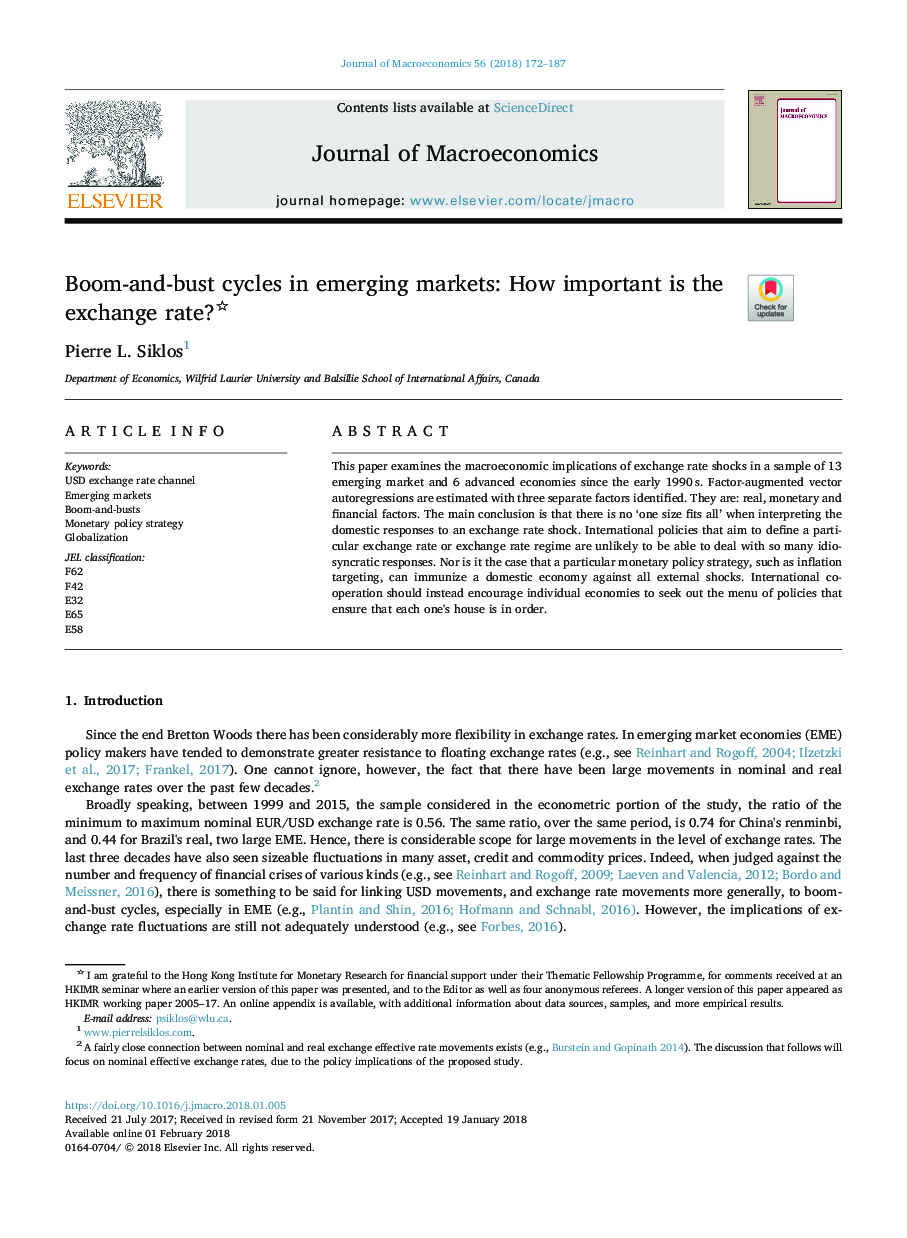| Article ID | Journal | Published Year | Pages | File Type |
|---|---|---|---|---|
| 7366767 | Journal of Macroeconomics | 2018 | 16 Pages |
Abstract
This paper examines the macroeconomic implications of exchange rate shocks in a sample of 13 emerging market and 6 advanced economies since the early 1990â¯s. Factor-augmented vector autoregressions are estimated with three separate factors identified. They are: real, monetary and financial factors. The main conclusion is that there is no 'one size fits all' when interpreting the domestic responses to an exchange rate shock. International policies that aim to define a particular exchange rate or exchange rate regime are unlikely to be able to deal with so many idiosyncratic responses. Nor is it the case that a particular monetary policy strategy, such as inflation targeting, can immunize a domestic economy against all external shocks. International cooperation should instead encourage individual economies to seek out the menu of policies that ensure that each one's house is in order.
Related Topics
Social Sciences and Humanities
Economics, Econometrics and Finance
Economics and Econometrics
Authors
Pierre L. Siklos,
